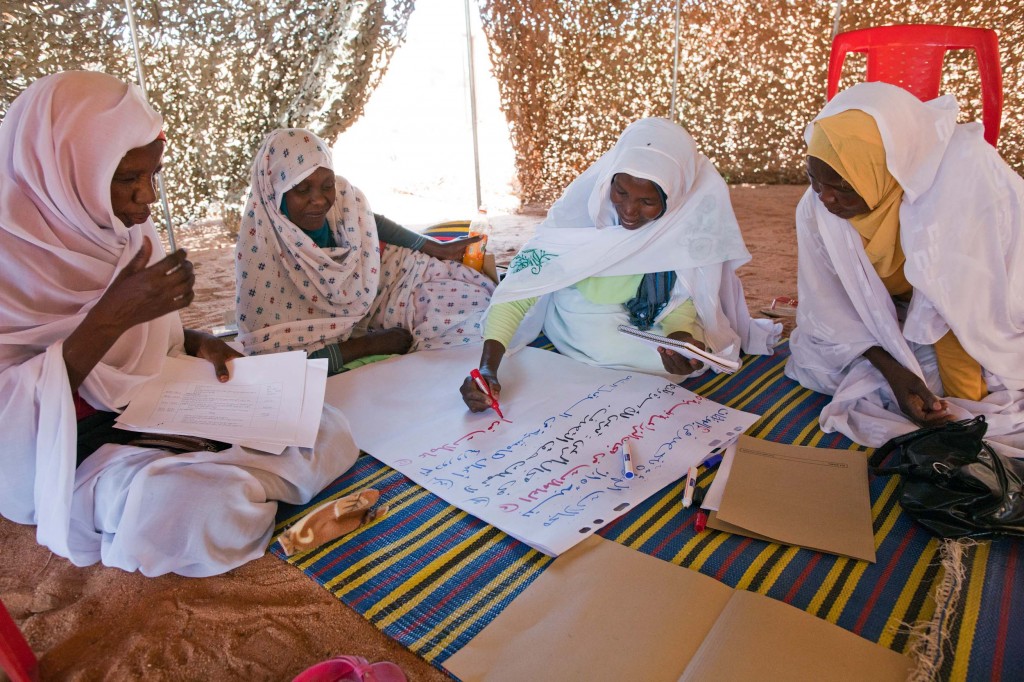By Alex Paul
Since 2000 there has been increasing recognition that building a more sustainable peace requires building a more inclusive peace. An inclusive peace aims to ensure peace efforts engage with all the affected parties, not just those directly involved in the fighting. Central to the inclusivity is the contribution of civil society and in particular women, who are all too often not included in the process of negotiating and implementing a peace deal. After all, “efforts to resolve conflicts and address their root causes will not succeed unless we empower all those who have suffered from them” wrote UN Secretary General Kofi Annan in 2002.
Otherwise, trying to create a more sustainable peace while ignoring over half the population is a recipe for failure, especially when “women’s agency, their creativity and patience, and their capacity to love and to build consensus… make women a valuable constituency for peace”, as Lakshmi Puri, the Deputy Director of UN Women, observed. But when civil society and other actors are included, the peace process enjoys a greater sense of national ownership than elite-negotiated deals, increasing the likelihood that its subsequent implementation will be successful.
It was with these goals in mind that women from around the world met in June 2014 at the Better Peace Symposium. The event, hosted by the International Civil Society Action Network (ICAN) and partners (including WIIS) aimed to “move beyond the question of ‘why’ inclusivity matters, to ‘how’ it is being practiced” and provide a forum for information sharing among peace process actors.
The three days of open, honest dialogue about how women activists can ensure their involvement in the peace process was truly inspiring. While a final report on the conference outcomes and strategies for moving forward will be released by ICAN later this year, the observations noted below should be emphasized in all the work of civil society when it comes to peacebuilding.
'Workshop on UN resolution 1325' UNAMIL, 26 September 2012. Accessed at: https://www.flickr.com/photos/unamid-photo/8046317608
Firstly, the involvement of women in peace processes changes the dynamics of the negotiations and often results in a broader and more comprehensive settlement. Indeed, one speaker testified to how even one woman present at negotiations can result in a final agreement including very specific commitments aimed at women’s empowerment. Furthermore, the multiplier effect is noticeable – representation at the top level leads to representation down the line. The more women at the table, the more women involved in the overall implementation process.
Unfortunately, one of the most significant barriers is getting to the table itself. This is where the international community can help by using its contacts to impress upon all parties (and the mediating team too) the reasons why women must be there. In this regard, UN Security Council Resolution 1325 is an excellent tool, as it can be used not only by states supporting the process to push for greater inclusion, but also by civil society to hold the states supporting the process accountable for their commitments.
Secondly, inclusion does not necessarily mean representation. Even when present, women and civil society have to fight to ensure that having a voice results in real change. This is especially true as women don’t only work for women but bring different perspectives from all of society to the table. This was demonstrated at the conference by the impressive Syrian delegation, whose breadth and depth of experience underpinned their dynamic contributions on how to rebuild society in their war-torn state. If they get to the negotiating table, they will be a real force for peace.
A key observation emerging from the symposium was that women and civil society groups need to be ready for peace talks before they are even proposed. Representatives need to be agreed upon and the capacity built among organizations to support the process in advance of any talks. The mechanisms for a constant dialogue between those at the table and those on the ground need to be developed, lest achievements on the ground go unrepresented in official documents. This way, all the pieces are in place and civil society can concentrate on getting its views acted upon, which happened in Mindanao in the Phillippines.
Finally, the experience of many participants also highlighted the importance of effective coordination. It ensures that civil society speaks with one loud and clear voice. In its absence, potentially competing messages will get lost in the noise. Meanwhile, coordination between national and international NGOs and partners mean that those outside the country know where to offer support and also when to step back and let national partners lead.
There are two additional points worth emphasizing. The first one is how invaluable UNSCR 1325 is to all aspects of increasing women’s involvement in peacebuilding, as it reinforces the fact that women are essential to all elements of international peace and security. Finally, as one participant from South Sudan noted at the end of the symposium, “I’ve been to a lot of conferences talking about the problems. At Better Peace, we talked about the way forward.” We know the involvement of women makes peace a more realistic prospect – now let us work together to make a #betterpeace happen.

Banner image: Helmet and Flak Jackets of MONUC Peackeepers' United Nations Photo, February 14, 2008. Accessed at https://www.flickr.com/photos/un_photo/3331239203

